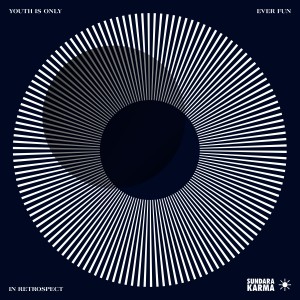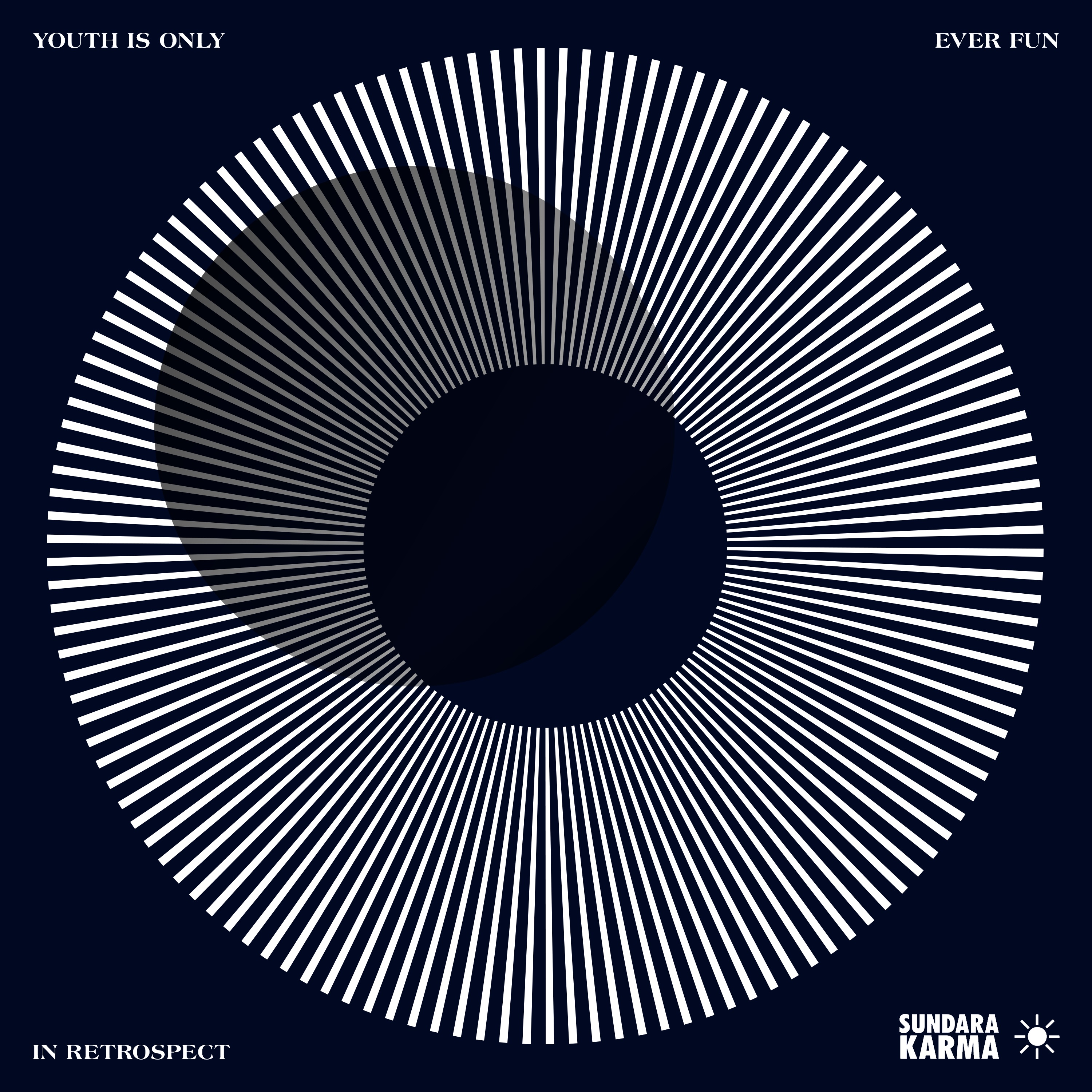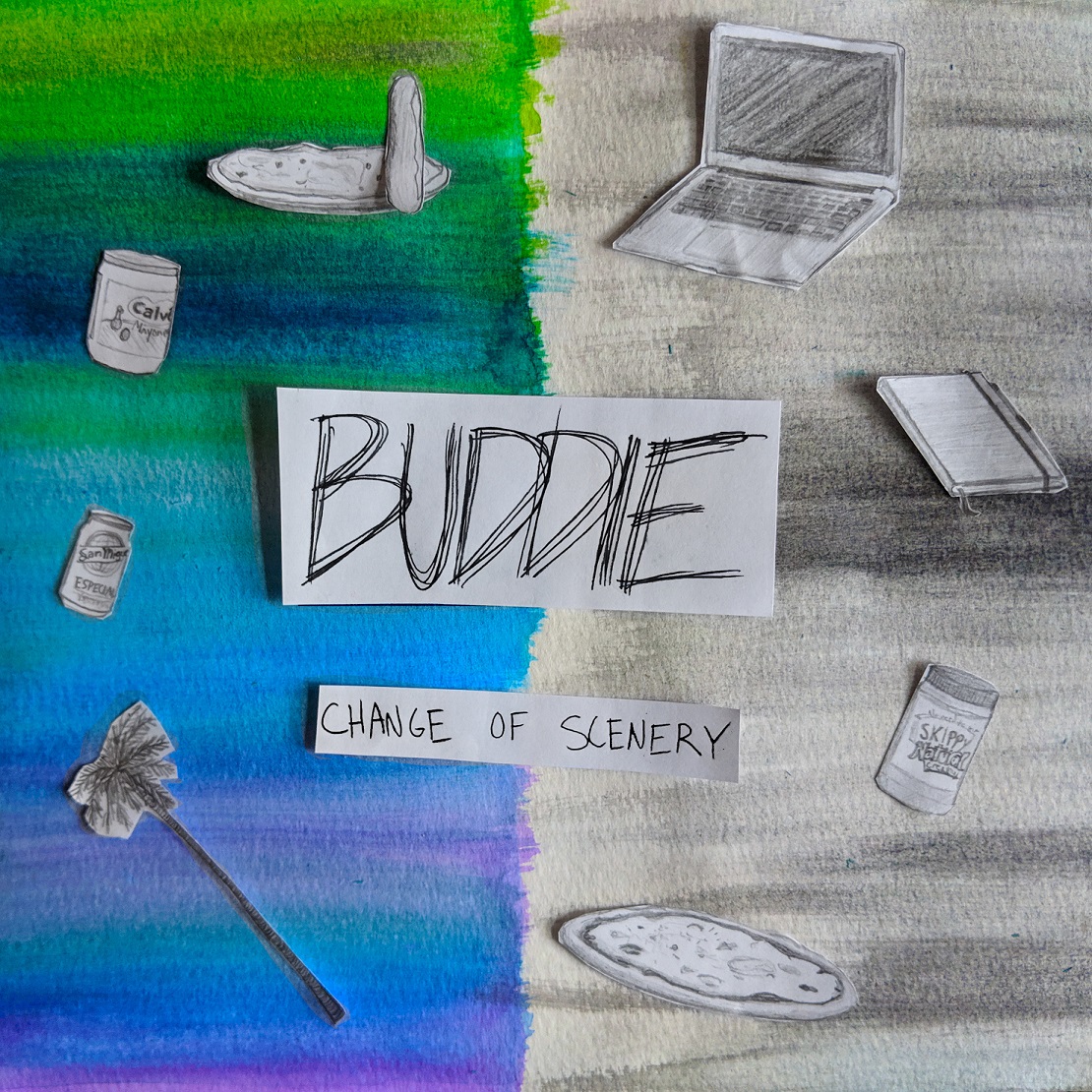Dark horse is a term that quite accurately describes Sundara Karma. Upon first glance, the Reading foursome, made up of vocalist/guitarist Oscar Pollock, drummer Haydn Evans, bassist Dom Cordell, and guitarist Ally Baty, seems to have sprung up over the course of six months, with songs like “Flame,” “She Said,” and “Loveblood” only just creeping to upward of a million streams. But nothing could be further from the truth. The four have been making music together since they were fourteen and have been slowly and steadily releasing, re-releasing, and perfecting their music since 2013. What began as playing the local Reading pubs only grew as the group put more songs out online. With the release of several EPs, Sundara Karma quickly became a familiar name among British music bloggers, journalists, and fans.

All of which has combined to make them one of the top names in Britain’s ever-expanding list of up-and-coming bands. They’ve toured throughout their home country and played major festivals both at home in the United Kingdom and abroad. And now the moment that seems to have been so long in coming, the release of their first debut album, the aptly-titled Youth Is Only Ever Fun In Retrospect, newly released January 6, 2017 (via Bee & EI/Sony RAL).
Part of Sundara Karma’s appeal lies in their incredibly honest approach. Amid references to Plato, Manet, and Oscar Wilde, there’s a religious, almost-existential streak that runs through their music that balances even the group’s most fun-loving tracks with a sense of gravity. There’s a point-blank type of honesty that gives songs like “Happy Family,” “Be Nobody,” and “Deep Relief” a level of rawness often not found in much rock music, which is in turn perfectly balanced with anthemic slammers like “Flame,” “She Said,” and the perfect blend of inward-turning, outward-looking rock that is the album’s opening track, “A Young Understanding.”
That sort of balance, upon considering the band’s relatively young age, can be even more impressive or a completely unsurprising occurrence, depending on how you view youth. And that’s the exact sort of duality present throughout Youth Is Only Ever Fun In Retrospect that makes it one of the most impressive record debuts in recent memory.
Atwood Magazine got the chance to catch up with frontman Oscar Pollock Sundara Karma before the album’s release to discuss Youth Is Only Ever Fun In Retrospect, Sundara Karma’s meteoric rise, and, of course, the joys and drawbacks of youth.
MEET SUNDARA KARMA
Atwood Magazine: Hey Oscar what’s up?
Oscar Pollock: Hey, I’m doing good, thanks, how are you?
How’s December been treating you?
Oscar Pollock: It’s been very…well, I’m a bit hungover today…so…
Well, that's...fun. Not. Let's get started. As a group, you’ve been making music together since you were 14. You’ve been putting out music since 2013 and have established a loyal fan base. 'Loveblood' and 'Flame' have reached millions of plays and this past year you’ve toured throughout the UK & Europe, played numerous festivals, and even did a mini-tour in a few major American cities.
Oscar Pollock: Mhm.
All without releasing a full-length album. That’s really impressive.
Oscar Pollock: Thank you, yeah. It was exciting.
What’s that been like for you—watching as more and more people all over the world fall in love with your music?
Oscar Pollock: It’s a very bizarre thing. I mean…for me, I just have to always, like, create and write. And when something you do like that kind of like [ends up taking] you all over the world, or like, you know, at shows we’ll be playing to like hundreds of people, it’s a very weird thing. It’s definitely not something that you think about [when you create]. It takes some getting used to. But, you know, it’s fucking crazy. It’s kind of what we dreamed of being able to do. And it’s been better than the day jobs we used to have, you know. And it’s crazy that we have the opportunity to do this.
That’s really cool. So your name is pretty clever, with “Sundara” meaning beautiful, right?
Oscar Pollock: Mhm.
And Karma being…well, like, you know…karma.
Oscar Pollock: Karma being karma. Karma being a bitch! [chuckles]
Yeah, exactly! So was keeping duality in your music something that was in your mind when you came up with that name or was it something that you sort of developed just as you were writing and putting things together?
Oscar Pollock: We’ve never really been very conscious of any sort of themes in our style or like our direction or something like that. It’s just something that happened. I really like to take the back seat when it comes to writing songs or just like creating in general. Because I think if you get too involved, then the work will suffer for it. I kind of like to think of myself as a conduit or a channel, or whatever it is that things come through.
Watch: “A Young Understanding” – Sundara Karma
With an album titled 'Youth Is Only Ever Fun In Retrospect,' it’s no surprise that you’re dealing with, in the album, many perspectives on youth—as both a time in one’s life and as an idea. And throughout the album, youth is painted as both an alluring, exciting time on songs like 'She Said' and also a time that’s frustrating and unromanticized in songs like 'Be Nobody.' How did you come to start writing about the complexities of youth?
Oscar Pollock: I think very naturally. For me, my life has been a lot of fun, a lot of difficulty, quite a lot of shit there…and I love honesty in anything. And it was just…yeah, the most honest way I could put across or say what we’ve been through. [We thought] it’d be nice to have an album that kind of documented our experience, starting the band when we were fourteen, up until now. It’s like a chapter.
…I think if you get too involved, then the work will suffer for it. I kind of like to think of myself as a conduit or a channel, or whatever it is that things come through.
Which might make my last question sound kind of redundant—so people almost always seem to be surprised when young musicians create songs and albums that sound really mature and deal with super deep themes. Are people ever surprised to discover your age?
Oscar Pollock: Yeah! I guess. I mean, I turned 21 the other day…
Happy birthday!
Oscar Pollock: Thank you! [laughing]. And it’s a lot of people will comment on Instagram saying, like, I can’t believe that you’re only 21. And, see, I don’t know if that’s because I might look older just because of, like, my face? Or because…I’m not sure. But yeah. People do get quite surprised when they find out about our age. Which is weird. I think our age is an awful age to go through! [laughing]
Much of the album seems to reflect on ephemerality and not lasting. There’s that beautifully-raw line in 'Happy Family' that I love—“Nothing lasts forever, time will always take its toll”—and, of course, the line from which you take the album title in “Deep Relief.” And yet as a whole, the album’s not overly melancholy, but seems extremely well-balanced. You mentioned being a conduit when you write. Can you talk us a little bit more through your songwriting process?
Oscar Pollock: Yeah. All the songs on that record, really, were written in my bedroom at my mum’s house. And, I guess, in my bedroom at my dad’s house…And it’s [a] very, kind of, like slow process for me. I don’t try to force anything. I like to take my time. “Loveblood,” that’s a song that took four years to write. The first chord [I wrote] I liked, and then [it took] kind of putting it away for a bit, for like two years, and then coming back to it. It’s very long and drawn-out for me and…it’s just more authentic. The songs feel more authentic when you let them breathe.
Watch: “Loveblood” – Sundara Karma
Yeah, I can definitely hear that.
Oscar Pollock: Yeah. And…there’s not too much to say about the writing, I just carry [songs] around and I guess [there’s] a bit of decision-making. You can’t just like sit back and do nothing. It’s kind of a nice balance for me, letting things float through and deciding when is the right time to write them down or follow [them] where they’ll take me.
So since you released it awhile back, I’ve always kind of been intrigued in your song “Vivienne.” It just really seems to nail that whole feeling of feeling like you’re invincible that accompanies young love. Can you tell us a bit more about how you came to write it?
Oscar Pollock: Yeah, sure. I guess it kind of comes out to the fact that, to be honest with you, we didn’t—we don’t—particularly like that song too much! And we didn’t want to put it out. But our label, our management, were very keen for us to do so. They thought it was quite radio-friendly and it’s probably one of our more popular tracks. So…it was originally called “Juliet” as well. But we changed the title because we didn’t want to be too tied-in to, like, Romeo & Juliet. But yeah, I can’t really say too much about it. It was like, I wanted to write a song, like a very cliché love story with that was cinematic and [filled with] grandeur…but yeah, invincibility, I liked that word you used, that was cool. So yeah.
Watch: “Vivienne” – Sundara Karma
You recorded some of the songs from the album in Berlin. Can you tell us a bit more about that whole experience?
Oscar Pollock: Yeah, it was incredible! I don’t know if you’ve ever been, but it’s something about the place that’s, like, buzzing. And not like overwhelming-buzzing, not like New-York-buzzing or London-buzzing but it’s like this kind of minimal…like it’s got this [quality] that’s really cool. We were only there for like ten days, you know, for two weeks, but even still I think…a lot of the art…and artists living there are quite keen. It all [the album] turned out well…but for years artists have been going there, [so] it was really cool.
Berlin seems pretty cool! So from start to finish, the album flows really well, from that bit at the end of “A Young Understanding” that kind of sounds like “Loveblood,” you’ve clearly been intentional about what you’ve included. How did you go about selecting the songs out of your discography to include?
Oscar Pollock: It was really easy, to be honest. We didn’t have too many tracks. I know some people say like, “oh, we have a fucking hundred, a hundred and twenty songs to choose from.” [But] we really had like, I don’t know, maybe 30, 35 max that…seemed to kind of, like, it felt cohesive and coherent to play them all together, you know, feels like kind of a concept album in that way.
Well, it sounds really great! So what was it like to headline Reading and Leeds? Being from Reading, that must have been pretty cool.
Oscar Pollock: Mhm. [It was] fucking nuts. I still can’t believe it happened. We, like, burned out after that, you know, we got really really drunk after the show. When you tend to do that, you kind of forget a bit of what everything that happened before. [So] all we have really is…it was one of the best gigs we’ve ever played. The crowd was just fucking crazy. We were in Scotland before that and we had to drive down the night before. And as we were driving, we really kind of felt like we were kind of going off to war, kind [of], as a band…to this massive show. It was insane. It was pretty cool.
It’s kind of what we dreamed of being able to do… And it’s crazy that we have the opportunity to do this.
That’s awesome! So your music’s been called, genre-wise, “modernist indie rock,” “shimmer rock,” and like “kind-of-like-Foals-but-not” and a ton of other interesting really specific, oddly-specific, labels. Do strict labels and ideas of genre matter much to you guys or not?
Oscar Pollock: I mean, people label, won’t they? And it’s what people do, they become fixated. But I’m okay with it. I think, I think in terms of an open mind, I absolutely realize that [a] label, and what a label can be, you know, is not necessarily going to best describe the music you’re listening to…And even rock now, everything is just like a mishmash and it blends into each other. I don’t know. I mean, if you didn’t have labels, the world would be pretty fucking chaotic.
That’s true (laughing)…So if Youth Is Only Ever Fun In Retrospect were a film, who would you choose to direct it?
Oscar Pollock: Nicolas Winding [Refn, who directed Drive].
Yeah? Nice! So the album artwork is a nice play off your logo. It’s kind of like an eclipse, but not at the same time. How’d you come up with it?
Oscar Pollock: It was designed by… a print guy who lives [down] in London. Cool individual. We [sent some images to him] and he knocked up a very kind of chic, modern thing that we wanted. And it worked. Yeah.
It’s cool.
Oscar Pollock: Quite trippy. It can be quite trippy if you look at it for ages.
Yeah, definitely! So 2016 is pretty much wrapped up. Out of curiosity, what have been your favorite albums or songs this year?
Oscar Pollock: I really like Human Performance by Parquet Courts. That was a wicked record. The Father John Misty album—was that this year or was that 2015?
I don’t remember. I think it might have been 2015. I’m not sure. But he’s pretty cool, pretty crazy, so…
Oscar Pollock: Yeah, but that was a wicked record anyway. Get that on there!
So what are you looking forward to most in 2017? Besides, obviously, the album release.
Oscar Pollock: We’ll be going to Japan. If that’s still on the line. I’m not sure. But if [that still happens], that would be fucking dope!

Youth, like all of life, is a dynamic time meaning many different things to many different people. Sundara Karma have certainly plumbed the depths of their own experiences to draw on to create an album that effectively captures youth, in all its terrible beauty. And yet it’s something so much more than just that. Youth Is Only Ever Fun In Retrospect captures the duality of the human experience in so many facets that it’s easy to say that the group possesses more than a young understanding—it’s an understanding that through its honesty, transcends age.
— —
Connect with Sundara Karma on FB, Twitter, Insta
Discover more new music on Atwood’s Picks
cover photo © Tom Oxley
:: Sundara Karma UK Tour 2017 ::
1/24 Birmingham @ O2 Academy*
1/25 Cambridge @ Corn Exchange*
1/27 Manchester @ O2 Apollo*
1/28 Manchester @ O2 Apollo*
1/30 Leeds @ O2 Academy*
1/31 Newcastle @ O2 Academy*
2/2 Liverpool @ Guild Of Students*
2/3 Glasgow @ Barrowlands*
2/4 Glasgow @ Barrowlands*
2/ 5 Southampton @ O2 Guildhall*
2/7 Bristol @ O2 Academy*
2/9 London @ Alexandra Palace*
2/10 London @ Alexandra Palace*
2/11 Birmingham @ The Rainbow Warehouse
2/12 Liverpool @ O2 Academy
2/13 Sheffield @ Leadmill
2/15 Newcastle @ Northumbria University
2/16 Manchester @ Albert Hall
2/17 Glasgow @ The Garage
2/18 Leeds @ Leeds University
2/19 Reading @ 3 Sixty
2/20 Leicester @ O2 Academy
2/22 Portsmouth @ Wedgewood Rooms
2/23 Cardiff @ Cardiff University
2/24 London @ O2 Shepherds Bush Empire









